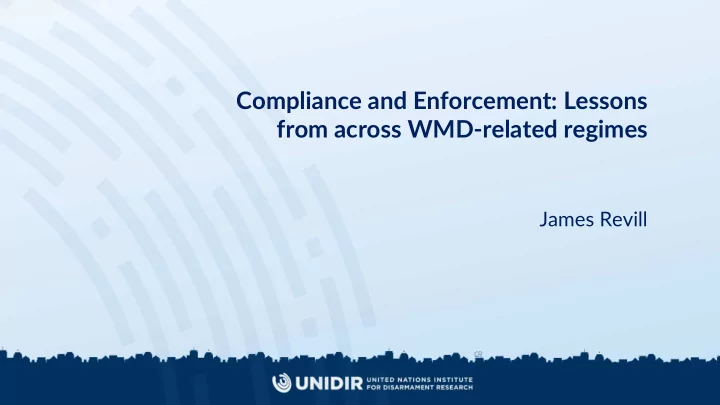

Compliance and Enforcement: Lessons from across WMD-related regimes James Revill
OUTLINE • WMD arms control and disarmament as ‘global public goods’ • Determining compliance • Procedural clarity • A division of labour • Underused tools • Enforcement of WMD-related agreements • Reflections
WMD COMPLIANCE AND ENFORCEMENT SERIES
GLOBAL PUBLIC GOODS National security interest Enhance international political standing Mitigate domestic pressure Strengthen norms of behaviour Treaty-specific incentives
DETERMINING COMPLIANCE The gravity of the alleged case; The source and credibility of the allegation; The wider political context; and The investigative processes, tools and resources.
PROCEDURAL CLARITY One lessons of consequence is the importance of operating within the boundaries of agreed treaty procedures. However, established procedures may not always be suited to dealing with new or non-standard challenges; Ongoing contingency planning is required to prepare treaty regimes and States Parties for an uncertain future.
A DIVISION OF LABOUR Specialist International Bodies States Parties Wider stakeholder engagement
UNDERUSED TOOLS Consultations Investigations & Science & Inspections Technology
RESPONDING TO NON-COMPLIANCE Request for National Technical Reputational Civil law actions measures to criminal assistance sanctions redress prosecution Likeminded/ Diplomatic Suspension of National Collective treaty regional approaches by treaty privileges/ sanctions measures sanctions DG assistance Referral to the ICJ advisory Referral to UNSC UN sanctions Unilateral action ICJ opinion
Recommend
More recommend